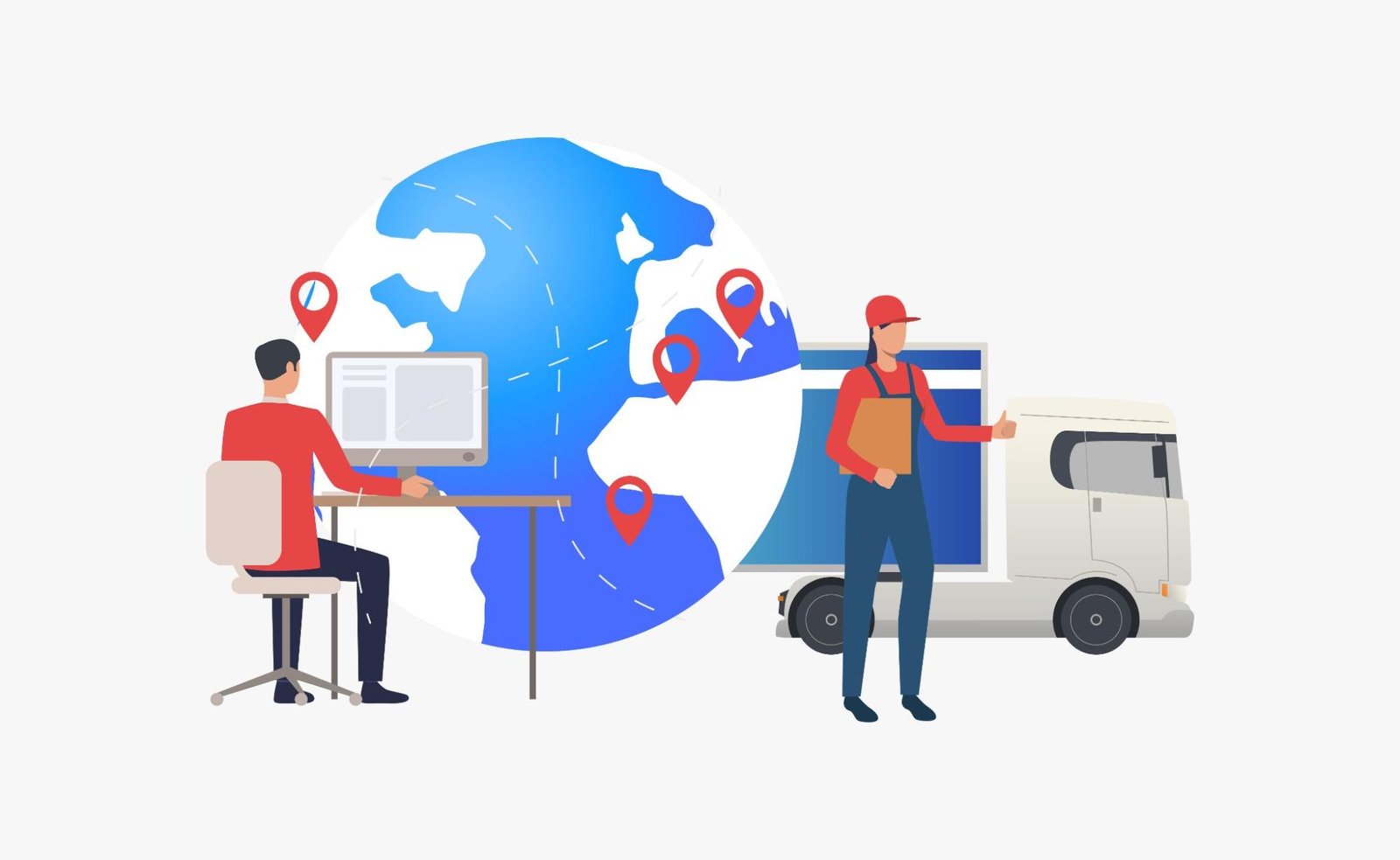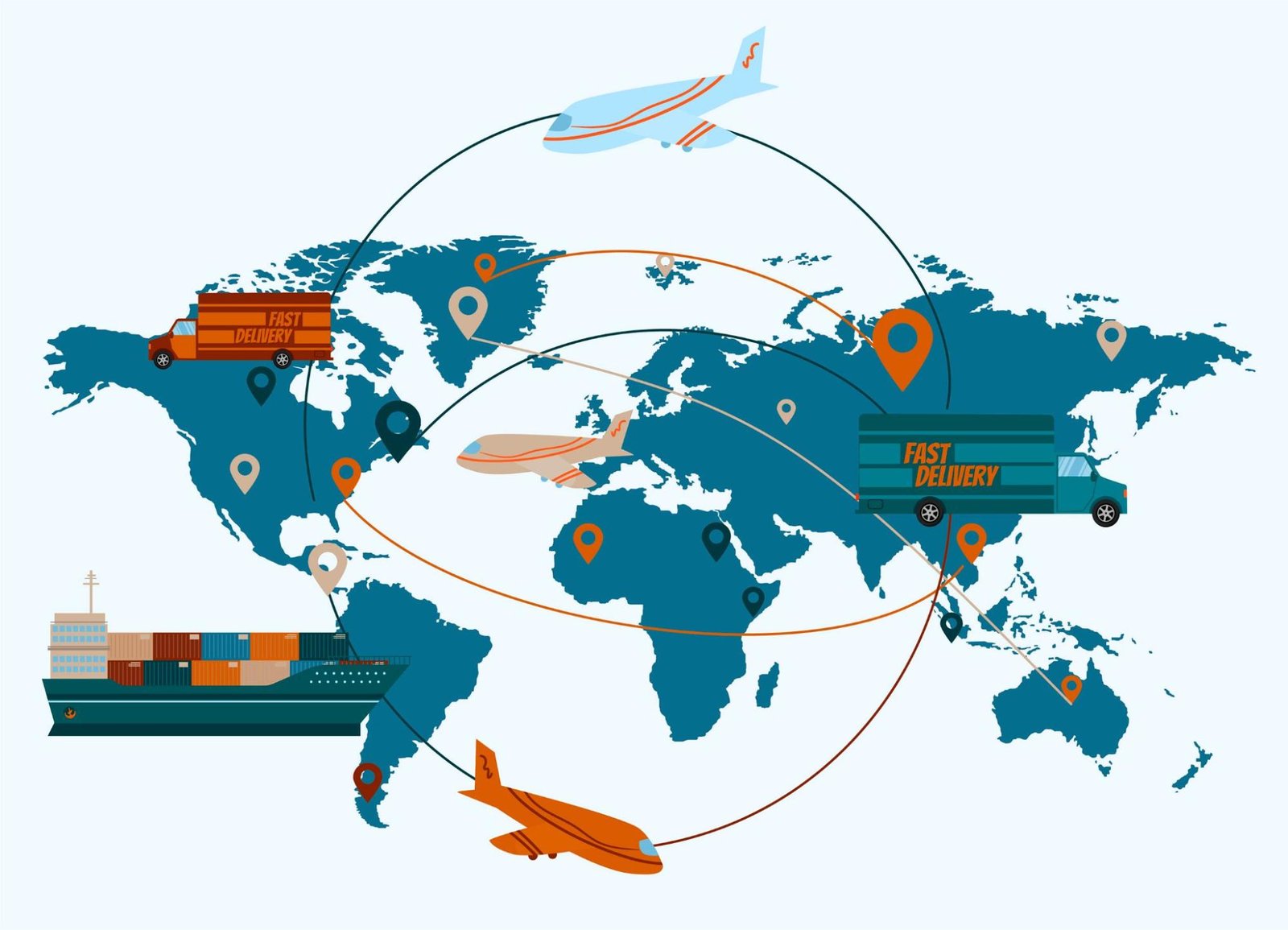
Comparing Local vs. Overseas Bulk Product Sourcing: Which is Better?
Author:White Fox Corporation
Published on:May 19 2025
When businesses plan to scale, one of the first questions they encounter is about sourcing: should they rely on local suppliers or explore global sourcing options?
From bulk product sourcing to specialized services like print media sourcing, the decision can impact cost, quality, timelines, and even brand reputation.
QIMA's 2025 Global Sourcing Survey shows that one-third of businesses expect supply chain problems to get worse in 2025. This emphasizes the importance of making smart sourcing choices.
This article breaks down both strategies local sourcing vs. global sourcing so you can confidently choose what’s best for your business.
Understand Local Sourcing

Local sourcing refers to purchasing products or raw materials from suppliers located within your own country or region. It’s often the go-to for businesses that prioritize speed, transparency, and supporting local economies.
What is Local Sourcing?
Local sourcing means procuring goods, components, or services from suppliers within the same country or geographical area. It’s often used by companies that want quicker delivery times, easier quality control, and simplified logistics.
In the case of Print media sourcing, local suppliers can offer quicker turnarounds for marketing materials like brochures or packaging making it a strategic choice for fast-moving consumer goods.
Advantages of Local Sourcing
Choosing local can simplify operations in more ways than one. Here's how:
-
Faster Lead Times
Local suppliers drastically cut shipping time, which is especially useful for urgent orders or seasonal products. -
Easier Communication
Being in the same time zone and speaking the same language makes discussing product specs or resolving issues smoother. -
Support for Local Economy
By choosing local partners, businesses can contribute to community employment and economic growth. -
Lower Shipping Costs
With shorter distances to cover, transportation and customs costs are significantly reduced. -
Greater Supply Chain Visibility
You can easily visit your suppliers and conduct in-person quality inspections. Zippia reports that the global supply chain market will grow at an average rate of 11.2% each year from 2020 to 2027.
Challenges of Local Sourcing
While convenient, local sourcing isn’t always perfect. Here are some limitations:
-
Higher Costs
Labor and material costs tend to be higher in developed countries, which can eat into your margins. -
Limited Variety
Local manufacturers may not have access to the same range of raw materials or product types as international ones. -
Capacity Constraints
Smaller, local suppliers may not be able to scale production quickly to meet large bulk orders. -
Dependency on Local Market Conditions
Economic fluctuations or regulations can directly impact supply and pricing.
Understand Global Sourcing
When local options fall short in price, capacity, or variety, businesses often turn to global or overseas sourcing. Many now look to product sourcing in India due to its mix of affordability, manufacturing expertise, and growing infrastructure.
What is Global Sourcing?

Global sourcing is the practice of procuring goods or services from international markets. It allows businesses to take advantage of price differences, wider product options, and large-scale manufacturing capabilities.
Global sourcing companies often manage the process on behalf of businesses, handling supplier vetting, compliance, and logistics.
Advantages of Global Sourcing
Sourcing globally opens up a world of benefits, especially for businesses focused on price and scalability:
-
Cost Efficiency
Many countries like India, Vietnam, or China offer lower production costs, making them ideal for bulk product sourcing. -
Wider Supplier Base
Global markets provide access to specialized factories and suppliers not available locally. -
Scalability
Overseas manufacturers often have the ability to scale production rapidly to meet high-volume demands. -
Advanced Capabilities
Some countries are more advanced in specific sectors. For example, product sourcing in India is known for textiles, handicrafts, and engineered goods. -
Access to Global Expertise
Partnering with a global sourcing company gives you access to industry knowledge, compliance support, and reliable logistics networks.
Challenges of Global Sourcing
Despite its perks, global sourcing has its drawbacks:
-
Longer Lead Times
International shipping, customs clearance, and production delays can stretch delivery timelines. -
Communication Barriers
Differences in language, time zones, and business culture can cause misunderstandings. -
Quality Control Risks
Without proper oversight, you might face issues with inconsistent product quality or non-compliance. -
Higher Minimum Order Quantities (MOQs)
Many overseas manufacturers only entertain bulk orders, which may not suit smaller businesses. -
Ethical and Legal Complexities
Global sourcing often involves navigating labor laws, trade tariffs, and sustainability concerns.
Key Considerations Between Local Sourcing and Global Sourcing
Choosing between local and global sourcing isn’t just about cost. It involves weighing several practical and strategic factors:
1. Product Type and Customization Needs
-
Products that require frequent iterations or customization might benefit from local sourcing for faster back-and-forth communication.
-
Mass-produced items, on the other hand, can be more cost-effective with global suppliers.
2. Budget and Profit Margins

-
If your business operates on thin margins, global sourcing might be more viable.
-
Local sourcing can be costlier but offers long-term brand value (e.g., “Made in USA” appeal).
3. Order Volume
-
For bulk product sourcing, overseas suppliers usually have the infrastructure and labor force to meet large orders.
-
Local suppliers might struggle to scale unless pre-arranged.
4. Speed to Market
- Local sourcing enables quicker production and delivery cycles important for trends, limited editions, or seasonal launches.
5. Sustainability Goals
- If sustainability is a key brand value, local sourcing helps reduce the carbon footprint associated with long-distance transport.
6. Risk Tolerance

-
Global sourcing carries risks like political instability, currency fluctuations, and longer recovery times during disruptions.
-
Local sourcing may offer more stability but less cost advantage.
Which Sourcing Strategy is Right for Your Business?
The "right" sourcing strategy varies from business to business. It often depends on your priorities whether it’s cost savings, quality control, or brand positioning.
1. Startups and Small Businesses
-
Local sourcing may be better for startups that need flexible order sizes, fast deliveries, and hands-on supplier relationships.
-
However, if cost is a major hurdle, working with a global sourcing company can simplify global procurement.
2. Established Businesses with High Volume Needs
-
Larger businesses typically lean toward bulk product sourcing overseas to reduce unit costs and meet demand at scale.
-
India, for instance, offers high-quality products at competitive prices making product sourcing in India a popular strategy.
3. Marketing and Print Materials
- For promotional items and print media sourcing, local providers ensure faster delivery and quality checks especially important for trade shows or events with tight timelines.
4. Hybrid Approach
- Many companies now blend both strategies. For example, core inventory may be sourced globally, while last-minute or region-specific items come from local suppliers.
5. Working with Sourcing Experts
- Whether local or global, partnering with a global sourcing company ensures better vetting, negotiation, and quality assurance. They can bridge the gap between your expectations and what suppliers deliver.
Conclusion
There’s no one-size-fits-all answer when it comes to choosing between local and overseas product sourcing. Your decision should align with your business goals, customer expectations, and operational capabilities. While local sourcing offers speed and control, global sourcing especially in countries like India provides cost advantages and scale.
The key is to balance your sourcing strategy by considering both short-term needs and long-term growth. In some cases, a mix of both local and global sourcing will give you the agility and resilience to thrive in today’s unpredictable market.
Whether you’re leaning toward product sourcing in India, need guidance from a reliable global sourcing company, or simply want advice on bulk product sourcing, Whitefox Corporation has your back.
We help businesses of all sizes make smart sourcing decisions by:
-
Finding reliable suppliers locally and overseas.
-
Managing logistics, compliance, and quality checks.
-
Offering tailored sourcing solutions, including print media sourcing for publishers and media firms.


